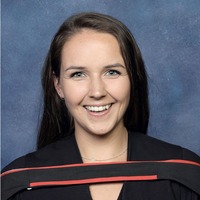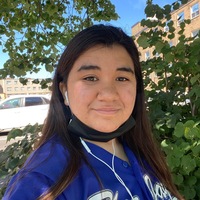What does "top of the morning" mean? And its origin?
What is the origin and meaning of the phrase "top of the morning"?
Origin
Although this phrase was originally used in the British Isles during the Victorian Era, it is currently used by the Irish.
Meaning
The direct meaning of "Top of the morning to you" is "The best part of the morning to you".
This is used as a greeting to wish somebody a good morning.
When somebody says this to you, an appropriate response could be: "And the rest of the day to you".
This is used to wish the person a good day in response.
Examples
If you are walking past somebody (whether you know them personally or not), you may say "Top of the morning" as a polite way of saying "good morning". But remember, this phrase is not often used in European or American countries, and is a greeting mostly used in Irish countries.
In conclusion
The phrase "top of the morning" is a polite and cheerful greeting used to wish a person a good morning. It originated in the Victorian Era, and is commonly used by the Irish.


"Top of the morning"
What: A kind of greeting we use in the morning.
Why: to wish someone to have a great day.
Origin: Britain ( Ireland), during the Victorian era.
Who uses it: Usually, working class people
Greeting- "Top of the morning!"
Greeting: Top of the morning to you!
Reply: And the rest day to you!
Native/ Traditional Greeting
Try to use it next time!
“Top of the morning” was a friendly greeting used during the Victorian era. It’s origin probably came from the cream that used to rise to the top of the milk. It’s a stereotype that people in Ireland still say this to each other. It is no longer used generally in English speaking countries.
Old greeting
Old fashioned way of saying hello.
An equivalent to "Good morning!" but typical for the Irish.
It is a very cheerful way of saying Good morning to one another, but how do we respond to that?
It's a no-brainer, really. Here are a few examples:
to you too!
have a good one, too!
and the rest of the day to you!
When are you likely to hear it?
It is most likely that you hear it on Irish TV shows or any other English morning shows on Saint Patrick's day (17th March).
Should we use it? When and where?
With all being said, it is noteworthy to mention that this phrase is outdated and using it in Irish communities may also sound stereotypical.
"Top of the morning to you!"
The origin of this idiomatic phrase comes from Ireland.
Essentially it means “The best part of the morning to you”; a typical response would be “And the rest of the day to you.”
This is giving the the hope that the person you say it to has the best morning.
In conlusion
If you want to say something other than "good morning" then consider saying "top of the morning to you". It will be received with a happy face.
Top of the morning meaning
It's another expression used in English to greet a person in the morning. It is a popular greeting used in places such as the UK and Ireland but not commonly used in other countries such as South Africa
"top of the morning to you, Inspector"
To conclude
Top of the morning is another way to greet a person and it is similar in meaning to 'Good morning' or 'Good morning to you'
What is "top of the morning"
It is used as a friendly morning greeting.
Traditional greeting used by the Irish. Not really used any more.
Typical response is" And the rest of the day to you."
What is "top of the morning"
"Top of the morning to you."
Response "And the rest of the day to you."
Irish greeting
Not regularly used any more.
Top of the morning is a formal greeting that refers to the start of the day, the rising or beginning of the day. When you want bring in the day when speaking to someone you would say “Top of the morning”. It could also be used in replace for “good morning”. Similar to the reference “top of the hour” referring to the start of the hour.
“Top of the morning” meaning
Me: (to the students) “Top of the morning” class! How are you all today?
Students: Good morning Ms. Freeman. We are good!
When to use “Top of the morning”
“Top of the morning” is majorly used as an introduction at the start of the day. It is not so common amongst the younger generation but the meaning is still the same.
"Top of the morning" is a cheerful greeting that can be said to someone in the morning. It can be viewed as a characteristic phrase of Irish people. It is also a very creative way of saying "Good morning!"
A cheerful greeting.
Formal or Informal Greeting
To say top of the morning means to greet someone in the morning.
John greets a group of people at the bus stop by saying, top of the morning.
When to use top of the morning.
This is said in the morning to encourage someone to have the best morning with a typical response of "and the best of the day to you.'
"Top of the morning"
This is an expression used as a friendly, cheerful greeting in the morning
Origin: Irish
Example: "Top of the morning to you, neighbour"
An appropriate reply to this would be "And the rest of the day to you"
its a saying used by people who are happy in the morning
its an emotional feeling that makes a person feel TOP OF THE MORNING they woke up so bubbly and full of life they feel on top of it all like nothing can put them down
i woke up this morning feeling so good i am top of this morning i am so unstoppable i know i got a good day ahead
wakeing up with a joyful smile and bubbly feeling also happy and excited full of life so.. YOU ARE TOP OF THE MORNING.












